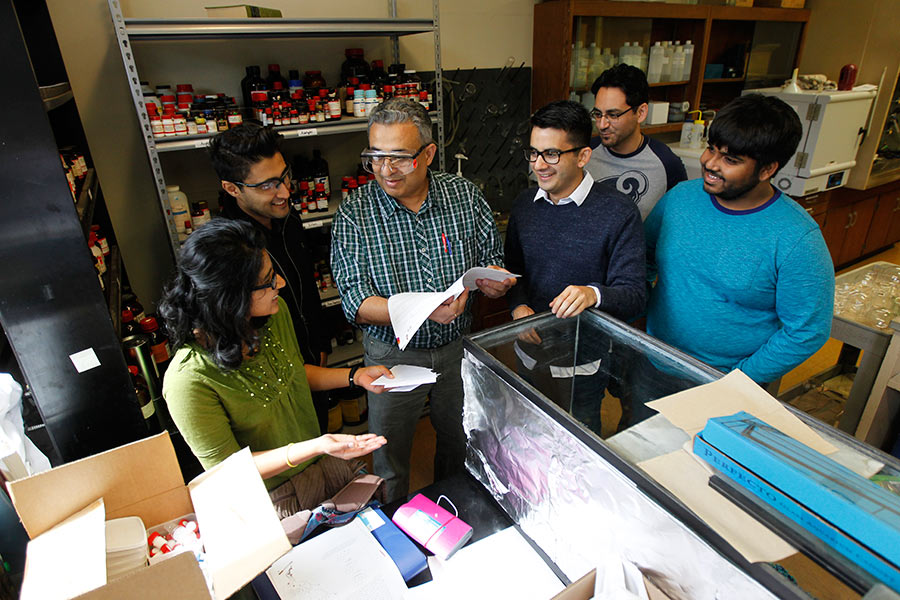Fresno State researcher hopes patents will lead to Alzheimer’s treatment
Dr. Santanu Maitra first learned about Alzheimer’s and other neurodegenerative diseases during his postdoctoral research in 1998. Unbeknownst to Maitra at the time, his mother Monika already was experiencing early symptoms of Alzheimer’s. After earning his Ph.D. and completing postdoctoral research, he started a career in the pharmaceutical industry, and within the next couple years, Monika was diagnosed with the disease.
On Dec. 25, 2008, she died — just months after he had returned to the United States from a job in India and joined the Fresno State faculty. That same month, Maitra and his research partner, Dr. Nilay Patel of California State University, Fullerton, met in Los Angeles and initiated a research project they hoped would one day lead to a treatment to delay the onset of Alzheimer’s.
Humans naturally produce a protein in their bodies known as apolipoprotein E (or apoE). It is believed that this protein, which can exist as apoE2, apoE3 andapoE4, has a close relationship with Alzheimer’s. While the first two have been found to be protective, apoE4 has been widely stamped as the “bad” protein linked with the onset of Alzheimer’s.
“Our original research has yielded compounds that can decrease the production of apoE in brain cells,” Maitra says. “Synthetic medicines, or drugs, are often made out of small organic compounds. Any drug discovery is a long-term, complex process; however, drug discovery can debut exactly how our research kicked off to arrive at the current findings.”
The research, which yielded methods of inhibiting apoE expression by administering triarylmethyl amine compounds, was promising enough to lead to two patents from the U.S. Patent and Trademark Office with the help of Fresno State’s intellectual property program.
“My collaborators and I are more than convinced that apoE regulation is the right path to follow,” Maitra says. “I am absolutely certain that our research will help add many of the puzzle’s pieces together to simplify or solve a major part of the mystery behind Alzheimer’s disease.”
Maitra is laser-focused on continuing the momentum of the research project. While he acknowledges that his mother’s struggle with the disease has raised his passion for the cause, he says he’s driven most by the opportunity to help alleviate general human suffering.
“I always wish the world could be a better place, with all humans getting along well, living healthy lives and caring for others,” Maitra says.
Maitra says he hopes the general public becomes more aware of the research potential at Fresno State and the impact it can make in the community or the world. For his project, Maitra trained a team of graduate and undergraduate students who he says learned through repeated failures in the lab and continuous, hands-on efforts to correct problems.
“I often hear that Fresno State, or any CSU, is primarily an undergraduate student training and educational institution where research should not be given high priority. It is impossible to disconnect research from education,” Maitra says. “Research exposure often inspires an otherwise unassuming student into an elevated academic path that she or he had never even considered.”






